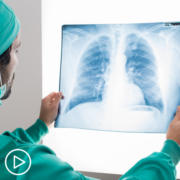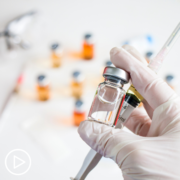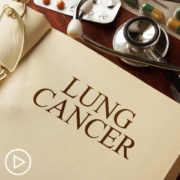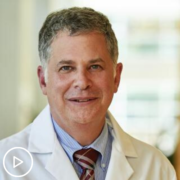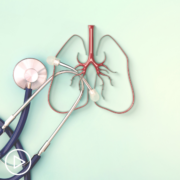Do Lung Cancer Screening Guidelines Differ for Certain Populations?
Do Lung Cancer Screening Guidelines Differ for Certain Populations? from Patient Empowerment Network on Vimeo.
Who should ensure they receive lung cancer screening? Expert Dr. Lecia Sequist explains lung cancer screening, the importance of screening, and patient age range and health history who should ensure they receive screening.
Dr. Sequist is program director of Cancer Early Detection & Diagnostics at Massachusetts General Hospital and also The Landry Family Professor of Medicine at Harvard Medical School.
[ACT]IVATION TIP:
“…if you are 50 years or older and you have smoked cigarettes in the past or someone that you know or love that’s that criteria, please talk to your doctor about whether you can access lung cancer screening. It’s very easy. It could save your life.”
Download Resource Guide en español
See More from [ACT]IVATED NSCLC
Related Resources:
Transcript:
Lisa Hatfield:
Dr. Sequist, is there any population that you would recommend regular screenings for lung cancer?
Dr. Lecia Sequist:
This is a great question. Screening for lung cancer is really important. Screening basically means testing someone who doesn’t have cancer or doesn’t know that they have cancer and doesn’t have any symptoms of cancer. So someone who’s just walking around feeling healthy, living their normal life. But screening them for cancer is important in order to try and catch it early. Because we know that the outcomes for cancer, the likelihood of being cured, for example, is much better if it’s found at the earliest stages before symptoms start. Lung cancer screening is one of the most effective types of cancer screening that’s out there. It can be more effective than screening for breast cancer or colon cancer, but a lot of people don’t know that there even is a screening test for lung cancer.
The screening test for lung cancer is simple. It’s easy. It’s called a low-dose CAT scan. It takes less than five minutes to perform. It’s completely non-invasive, so you don’t have any tubes or even needles or IVs put into your body. You just lay on a CAT scan table, take a deep breath and hold it, and it just takes about 30 to 40 seconds for you to go through the machine. So it couldn’t be easier. And it’s available for people who are 50 years or older and have a history of smoking cigarettes. So if that applies to you or your loved ones, you should definitely ask your doctor about whether you can get access to lung cancer screening.
So my activation tip for this question would be if you are 50 years or older and you have smoked cigarettes in the past or someone that you know or love that’s that criteria, please talk to your doctor about whether you can access lung cancer screening. It’s very easy. It could save your life.
Share Your Feedback:
Create your own user feedback survey

